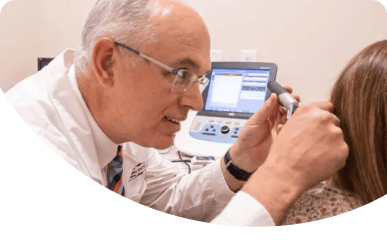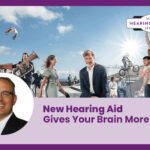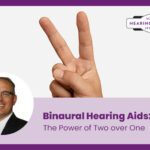Auditory Processing Disorder (APD) is a neurological condition that affects how the brain processes auditory information. While individuals with normal hearing can perceive and interpret sounds effectively, those with APD struggle to make sense of the auditory input they receive.
This difficulty is not due to hearing loss or cognitive impairment but a deficit in processing auditory signals efficiently. As a result, individuals with APD may experience challenges in various aspects of communication, learning, and daily functioning.
It is crucial to understand that APD is distinct from other hearing disorders or learning disabilities, as it specifically pertains to the brain’s ability to interpret sounds accurately. Identifying and addressing APD early on is essential for mitigating its impact on an individual’s academic and social development.
Let’s explore the different treatment approaches available for managing APD and improving auditory processing abilities.
Symptoms of Auditory Processing Disorder
Symptoms of Auditory Processing Disorder (APD) can vary widely among individuals, making it challenging to diagnose.
However, some common signs and symptoms may indicate the presence of APD:
- Difficulty understanding speech, especially in noisy environments: Individuals with APD may struggle to follow conversations, particularly when background noise is present.
- Trouble distinguishing between similar sounds: They may have difficulty differentiating between similar-sounding words or sounds, such as “cat” and “bat.”
- Poor listening skills: Individuals with APD may frequently ask for repetition or clarification during conversations, indicating a struggle to process auditory information efficiently.
- Delayed response to verbal instructions: They may take longer to respond to spoken directions or seem to ignore them altogether.
- Sensitivity to loud sounds: Some individuals with APD may be hypersensitive to loud noises, finding them overwhelming or distressing.
- Difficulty with language and reading: APD can impact language development and reading comprehension, leading to difficulties in academic settings.
- Trouble with auditory memory: Remembering and recalling auditory information, such as instructions or conversations, may be challenging for individuals with APD.
- Poor performance in noisy or distracting environments: They may have difficulty concentrating and performing tasks that require auditory processing in environments with competing sounds or distractions.
Recognizing these symptoms is crucial for early identification and intervention to help individuals with APD effectively manage their condition and improve their quality of life.
Advanced Hearing & Balance Specialists connect you to expert audiologists in Murray, UT, Hurricane, UT, Panguitch, UT, Beaver, UT, and nearby locations.
Causes of Auditory Processing Disorder
The exact causes of Auditory Processing Disorder (APD) are not yet fully understood, but several factors may contribute to its development:
- Brain Abnormalities: APD is believed to stem from abnormalities in the central auditory nervous system, which includes the pathways and structures responsible for processing auditory information in the brain. These abnormalities may be present from birth or develop later in life.
- Genetic Factors: Evidence suggests that genetic factors may play a role in predisposing individuals to APD. Research has shown that APD tends to run in families, indicating a genetic component to the disorder.
- Prenatal and Perinatal Factors: Certain prenatal and perinatal factors, such as maternal infections during pregnancy, exposure to toxins, premature birth, or complications during delivery, may increase the risk of developing APD.
- Childhood Illnesses or Injuries: Illnesses or injuries during early childhood, such as infections, head trauma, or chronic ear infections, can potentially damage the auditory system and lead to APD.
- Environmental Factors: Exposure to environmental toxins, such as lead or mercury, during critical periods of auditory system development may disrupt normal auditory processing and contribute to the development of APD.
- Neurological Conditions: Certain neurological conditions, such as attention deficit hyperactivity disorder (ADHD), autism spectrum disorder (ASD), or learning disabilities, may co-occur with APD, suggesting a potential relationship between these conditions.
While these factors may contribute to the development of APD, further research is needed to fully understand the complex interplay of genetic, environmental, and neurological factors involved in the disorder. Early identification and intervention are key to managing APD effectively and improving outcomes for individuals affected by the condition.
Advanced Hearing & Balance Specialists connect you to expert audiologists in Hurricane, UT, Panguitch, UT, Beaver, UT, Murray, UT, and nearby locations.
Auditory Processing Disorder Diagnosis and Treatment
Diagnosis of Auditory Processing Disorder (APD) typically involves a comprehensive assessment conducted by audiologists, speech-language pathologists, and other healthcare professionals trained in evaluating auditory processing abilities.
This assessment may include behavioral tests, questionnaires, and neurophysiological measures to identify specific deficits in auditory processing. Once the audiologists at Advanced Hearing & Balance Specialists diagnose, treatment strategies can be tailored to address the individual’s unique needs.
Treatment Options
Treatment for APD aims to improve auditory processing abilities and alleviate associated difficulties. While there is no single cure for APD, interventions may include:
Auditory Training: This involves structured activities designed to strengthen auditory skills, such as auditory discrimination, auditory sequencing, and auditory memory. These activities can be delivered individually or in groups and may incorporate computer-based programs or interactive games.
Environmental Modifications: Adjusting the individual’s environment can help reduce auditory distractions and improve their ability to focus on relevant auditory information. Strategies may include minimizing background noise, using assistive listening devices, or implementing classroom accommodations.
Speech-Language Therapy: Speech-language pathologists can work with individuals with APD to improve communication skills, including speech production, language comprehension, and social communication. Therapy may focus on developing compensatory strategies to overcome specific auditory processing challenges.
Educational Support: Collaborating with teachers and educational professionals is essential to provide appropriate accommodations and modifications in the academic setting. This may include preferential seating, extended assignment time, or alternative instructional methods tailored to the individual’s auditory processing needs.
Improve Auditory Information Processing
Improving slow auditory processing involves targeted interventions to enhance the speed and accuracy of auditory information processing. Strategies may include:
Auditory Processing Exercises: Engaging in activities that require rapid processing of auditory stimuli can help improve processing speed over time. These exercises may involve listening to and responding to auditory cues in various contexts.
Cognitive Training: Activities designed to enhance cognitive skills such as attention, memory, and processing speed can indirectly improve auditory processing abilities. These activities may include puzzles, memory games, or attention-building exercises.
Multisensory Integration: Incorporating multiple sensory modalities, such as visual or tactile cues, along with auditory stimuli, can facilitate faster and more efficient information processing.
Overall, a multidisciplinary approach combining auditory training, environmental modifications, speech-language therapy, and educational support is typically recommended to address the diverse needs of individuals with Auditory Processing Disorder and improve their quality of life. Early intervention and ongoing support are essential for optimizing outcomes and maximizing functional abilities.
Treating APD with Therapy
Treating APD with therapy often involves the implementation of compensatory strategies aimed at helping individuals overcome specific challenges associated with auditory processing deficits.
These strategies focus on developing alternative ways to navigate auditory environments and communicate effectively. Here are some compensatory strategy approaches commonly used in therapy for APD:
Visual Cues: Visual aids and cues alongside auditory information can enhance comprehension and facilitate communication. Visual supports, such as written instructions, diagrams, charts, or gesture cues, can provide additional context and clarity to auditory input.
Repeat and Rephrase: Encouraging speakers to repeat or rephrase information can help individuals with APD better grasp and process auditory content. This repetition increases exposure to the information, making it easier to understand and retain.
Chunking Information: Breaking down complex auditory information into smaller, more manageable chunks can aid comprehension for individuals with APD. Presenting information in shorter segments with pauses for processing can prevent overload and improve understanding.
Active Listening Strategies: Teaching active listening techniques, such as maintaining eye contact, asking clarifying questions, and summarizing key points, can help individuals with APD stay engaged and focused during conversations or lectures.
Use of Assistive Technology: Leveraging technology, such as hearing aids, FM systems, or noise-canceling headphones, can improve the clarity of auditory input and reduce background noise, which enhances the listening experience for individuals with APD. Advanced Hearing & Balance Specialists provides a wide selection of hearing aids in St. George, UT, Hurricane, UT, Beaver, UT, and Mesquite, NV.
Environmental Modifications: Modifying the physical environment to reduce auditory distractions and enhance signal-to-noise ratio, signal power to noise power ratio, can optimize auditory processing for individuals with APD. This may involve minimizing background noise, optimizing lighting conditions, or using acoustically treated spaces.
Self-Advocacy Skills: Empowering individuals with APD to advocate for their needs and communicate effectively in various settings is crucial for fostering independence and success. Teaching assertiveness skills, self-monitoring techniques, and effective communication strategies can empower individuals to navigate auditory challenges confidently.
By incorporating these compensatory strategies into therapy sessions and daily activities, individuals with APD can learn to effectively manage their auditory processing difficulties and improve their overall communication and learning outcomes. It is essential to tailor therapy approaches to each individual’s specific needs and strengths to maximize effectiveness and promote long-term success.
Treating APD with Medication
Treating Auditory Processing Disorder (APD) with medication is not a standard practice, as APD is primarily a neurological condition related to how the brain processes auditory information rather than a disorder that can be treated with medication. However, in some cases, medication may be prescribed to manage comorbid conditions that often coexist with APD, such as attention deficit hyperactivity disorder (ADHD) or anxiety.
ADHD Medications: Stimulant medications, such as methylphenidate (Ritalin) or amphetamine salts (Adderall), may be prescribed to individuals with APD who also have ADHD symptoms. These medications can help improve attention, focus, and impulse control, which may indirectly benefit auditory processing abilities by reducing distractibility.
Anxiety Medications: Individuals with APD may experience anxiety related to their auditory difficulties, particularly in social or academic settings. Anti-anxiety medications, such as selective serotonin reuptake inhibitors (SSRIs) or benzodiazepines, may be prescribed to alleviate symptoms of anxiety and improve overall well-being.
It is important to note that while medication can help manage certain symptoms associated with APD, it does not directly address the underlying auditory processing deficits. Therefore, medication should be part of a comprehensive treatment plan that may include other interventions such as auditory training, environmental modifications, and speech-language therapy.
Before considering medication as a treatment option for APD, individuals should undergo a thorough evaluation by a healthcare professional to assess their specific needs and determine the most appropriate course of action. Any decision regarding medication should be made in consultation with a qualified healthcare provider and based on carefully considering the potential risks and benefits.
Advanced Hearing & Balance Specialists provides comprehensive hearing tests in Panguitch, UT, Beaver, UT, Murray, UT, and Mesquite, NV, and other key locations.
Treating APD with Therapy Lifestyle Changes
Treating Auditory Processing Disorder (APD) often involves incorporating therapy and lifestyle changes to help individuals manage their auditory difficulties effectively. These approaches focus on improving auditory processing skills, enhancing communication, and minimizing environmental barriers. Here are some therapy and lifestyle changes that can benefit individuals with APD:
Auditory Training: Engaging in structured auditory training exercises and activities can help individuals with APD improve their ability to process and interpret auditory information. These exercises may include listening games, auditory discrimination tasks, and sound recognition activities to strengthen auditory processing skills over time.
Speech-Language Therapy: Working with a speech-language pathologist can help individuals with APD improve their communication skills, including speech production, language comprehension, and social communication. Therapy sessions may focus on developing strategies to compensate for auditory processing deficits and improve communication effectiveness.
Environmental Modifications: Modifying the individual’s environment can help reduce auditory distractions and create a more supportive listening environment. This may involve minimizing background noise, using assistive listening devices like FM systems or noise-canceling headphones, and optimizing lighting conditions to enhance auditory focus.
Time Management and Organization: Developing effective time management and organizational skills can help individuals with APD navigate daily tasks and responsibilities more efficiently. Breaking tasks into smaller, more manageable steps, using visual schedules and reminders, and establishing routines can help reduce cognitive overload and improve overall productivity.
Healthy Lifestyle Habits: Adopting a healthy lifestyle can support cognitive function and overall well-being, which may indirectly benefit auditory processing abilities. Encouraging regular exercise, adequate sleep, balanced nutrition, and stress management techniques can help optimize brain health and cognitive function.
Advocacy and Self-Advocacy: Empowering individuals with APD to advocate for their needs and communicate effectively in various settings is essential for promoting independence and success. Teaching self-advocacy skills, assertiveness techniques, and effective communication strategies can help individuals navigate auditory challenges confidently.
By incorporating therapy and lifestyle changes into daily routines, individuals with APD can improve their auditory processing skills, enhance communication, and effectively manage their condition in various environments. It is essential to tailor interventions to each individual’s specific needs and strengths to maximize effectiveness and promote long-term success.
Auditory Processing Disorder Treatment | Advanced Hearing & Balance Specialists
Advanced Hearing & Balance Specialists offer thorough evaluations to accurately diagnose Auditory Processing Disorder (APD), ensuring personalized treatment plans tailored to your needs.
Take the first step toward relief and schedule your auditory processing disorder treatment with Advanced Hearing & Balance Specialists today.
With clinics conveniently located across Utah and Nevada, including St. George, Cedar City, Murray, Hurricane, Beaver, Panguitch, Mesquite, and Overton, finding the nearest location to you is easy.
Whether you need hearing aids in Murray, UT, a checkup with an audiologist in Hurricane, UT, or ear wax removal in St. George, UT, we can help.
Contact us today to schedule an appointment with the best audiologists in Utah and South Nevada!




